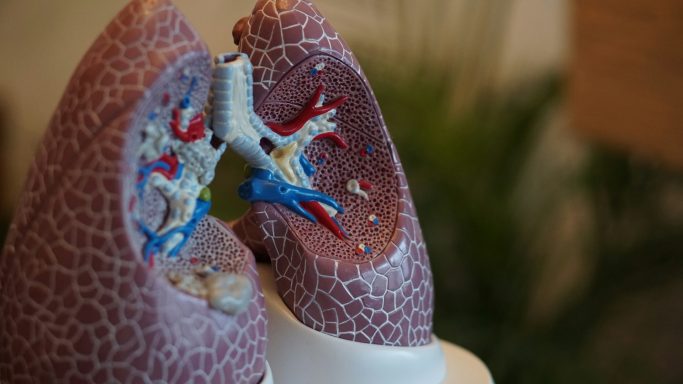Start your Tutorials Now!!
Elevate your EMS Class and NREMT Pass Ratio with RCS Medicine Tutorials.
Rapid Guarenteed Results
Emergency Medical Services (EMS) tutorials are essential for professionals in the healthcare field who aim to enhance their skills and knowledge in emergency medical care. These tutorials provide a comprehensive overview of critical concepts, protocols, and techniques that are vital for effective patient treatment during emergencies.
One of the primary focuses of EMS tutorials is to educate professionals about the most recent advancements in medical practices and technologies. As the landscape of emergency medical services continues to evolve, remaining up-to-date through tutorials ensures that practitioners are equipped with the latest information to provide high-quality care.
Additionally, EMS tutorials often include practical, hands-on training modules that allow professionals to practice life-saving interventions in realistic scenarios. This experiential learning approach helps to build confidence and proficiency in delivering emergency care in high-pressure situations.
Moreover, EMS tutorials are not limited to clinical skills; they also cover crucial topics such as communication, teamwork, and leadership in emergency management. Understanding how to effectively coordinate with other healthcare professionals and emergency responders is vital for ensuring a cohesive response during emergencies.
In conclusion, participating in EMS tutorials is a valuable investment for emergency services professionals. By engaging with these educational resources, they can refine their skills, stay informed about current practices, and ultimately improve patient outcomes in emergency situations.
81%
State of Texas EMT NREMT Pass Ratio - 2025
EMT Pass rate for nremt in texas
Based on the provided information, here's a summary of the NREMT pass rates for EMTs in Texas:
- Recent Texas Averages:
- One source indicates a Texas state average NREMT pass rate of 81% for 2025, and 89% for 2024.
- Another source shows a Texas pass rate for the EMT-Basic cognitive exam of 75% in 2021, 76% in 2022, and 79% in 2023.
- Program Specific Pass Rates (from Texas EMS School):
- 2019: 83%
- 2020: 87%
- 2021: 84%
- 2022: 88%
- National Averages:
- First-time pass rates for EMT students nationally average around 64%.
- The cumulative pass rate after three attempts reaches about 75%.
- The 2021 National Pass Rate for EMT programs averaged 68%.
Important Notes:
- These figures represent the pass rates for the cognitive (written) portion of the NREMT exam for the EMT level, unless specified otherwise.
- Pass rates can vary between different EMT programs.
- High-performing EMT programs generally have significantly higher pass rates than low-performing programs.
81%
State of Texas Paramedic NREMT Pass Ratio - 2025
Paramedic Pass rate for NREMT in Texas
This data information about the paramedic pass rate for the National Registry of Emergency Medical Technicians (NREMT) exam in Texas varies depending on the specific program and year
However, some sources provide general estimates:
- Texas Average: One source states that the Texas average pass rate for the NREMT Paramedic exam was 87% in 2022.
- National Average: The national average NREMT Paramedic pass rate was 86% in 2022. The first-time pass rate nationally is reported to be around 75%.
- Individual Programs: Individual programs in Texas report varying success rates. For example:
- One program reported a 92.9% pass rate in 2021.
- Another program indicated a 52.4% success rate for the most recent reporting period (2023).
- A school advertising a 2025 NREMT pass rate claims a state average of 81%.
It's important to note that these figures may refer to different metrics, such as the first-time pass rate or the cumulative pass rate within a certain number of attempts. Additionally, some data might be outdated as the National Registry constantly tracks and reports program outcomes.
For the most up-to-date and specific information, it is recommended to consult the National Registry of Emergency Medical Technicians website or the specific program you are interested in attending.
79% EMT 73% Paramedic
EMT/Paramedic EMS NREMT Pass Ratio - 2025
Pass rate for nremt nationwide 2025
Based on the information available from recent online sources, the nationwide average pass rate for the NREMT cognitive exam in 2025 is estimated to be
79%.
It's important to note that this is an average, and individual pass rates can vary depending on factors such as the specific NREMT level (EMT, AEMT, or Paramedic), and the quality of the training program attended.
For instance, one training institution reported an 87% pass rate for 2025, which is higher than the national average. This suggests that the quality of education and training can significantly impact a candidate's chances of passing the NREMT exam.
A breakdown of pass rates by certification level, based on 2025 data, suggests the following:
- EMT: 73%
- AEMT: 66%
- Paramedic: 76%
It's worth noting that the AEMT pass rate appears to be lower than the others, and some sources suggest this could be due to candidates not having a strong enough foundation from their EMT training.
Disclaimer: These figures are based on recently published information, but they are not the official statistics from the National Registry of Emergency Medical Technicians (NREMT). For the most accurate and up-to-date data, it is recommended to consult the official NREMT website.
Test Preparation Question Topics
The NREMT examination evaluates candidates on their clinical knowledge, practical skills, and decision-making capabilities within pre-hospital emergency contexts.
Here are some examples of the types of questions you might encounter:
Clinical knowledge
- Scenario-based Questions: You are likely to encounter scenarios describing patient presentations and be asked to identify potential conditions or determine the most appropriate course of action. For example, a question might describe a patient with specific symptoms and ask you to choose the most likely diagnosis.
- Pharmacology: Questions on medications paramedics commonly administer, including indications, contraindications, dosages, and routes of administration.
- Physiology and Anatomy: Understanding human body systems and how they respond to illness and injury.
- Trauma Management: Assessing and managing various trauma injuries.
- Medical Emergencies: Recognizing and treating conditions like cardiac arrest, stroke, and respiratory distress.
- Obstetrics and Gynecology: Questions related to managing labor, delivery, and related complications.
- EMS Operations: Questions covering topics like scene safety, communication with other agencies, and ethical considerations.
Practical skills
- Assessment Techniques: Demonstrating the ability to perform physical assessments and interpret findings.
- Intervention Procedures: Describing or demonstrating procedures such as airway management, splinting, and administering medication.
Decision-making and professionalism
- Prioritization: Evaluating situations and determining the most urgent needs and actions.
- Communication: Interacting effectively with patients, their families, and other healthcare professionals.
- Ethical Considerations: Addressing ethical dilemmas in paramedic practice, such as patient consent and confidentiality.
Trauma knowledge
- What is a sign of effective CPR?
- What is an indicator of pneumothorax?
- What is the medical term for a fast heart rate?
- What is the medical term for a slow breathing rate?
- What condition is characterized by high blood CO2?
- What condition is characterized by low blood oxygen?
- What is the significance of stroke volume?
- What is the main symptom of angina?
- What is the defining symptom of asthma?
- How does COPD affect breathing?
- What is the main goal of defibrillation?
- What is the indication for using a nasal cannula?
- What is the purpose of a non-rebreather mask?
- When is a bag valve mask (BVM) used?
- What is the focus of the primary survey?
- What is the focus of the secondary survey?
- What is the first step in bleeding control?
- What is the initial sign of shock?
- What is the main cause of septic shock?
- What is the normal capillary refill time?
- What is a sign of dehydration?
Medical knowledge
- What is the normal human body pH range?
- What is the role of the kidneys in pH balance?
- What is the respiratory system's method for controlling pH?
- What is the cause of respiratory acidosis?
- What is the adult's normal breathing rate range?
- What is the primary function of CPAP?
- What condition is associated with Kussmaul respirations?
- What is the difference between hypoglycemia and ketoacidosis?
- What is the best immediate treatment for heat stroke?
- What is the normal oxygen saturation (SpO2) range?
- What is the function of bicarbonate in the blood?
- What is a sign of respiratory distress?
- What is the primary cause of metabolic acidosis?
- How do you determine a patient's level of consciousness?
- What is the main goal of a rapid trauma assessment?
- What is the main goal of a 2nd assessment?


Elevate Your Expertise with Our CEU Topics
Stay Ahead in Your Profession
At RCS Medicine, we understand that staying informed is vital for medical professionals and first responders alike. Our curated collection of CEU topics spans a wide array of fields, from Occupational Safety and Health to Family Practice and beyond. We are committed to providing cutting-edge resources that help you maintain your certifications and enhance your clinical skills. Explore our comprehensive selection designed specifically for physicians, educators, and those in emergency services. Our topics are meticulously chosen to ensure that you have access to the latest information and updates that are critical in today’s fast-paced healthcare environment. Whether you're a Business Management Consultant looking to understand the intricacies of healthcare systems, an Educational Consultant seeking updated practices, or a Family Practice Physician aiming to deepen your knowledge and skills, we have the resources you need to support your professional growth. Dive in today and empower yourself with the knowledge that leads to better care and effective responses.

Hospital-Based Continuing Education Unit Topics
Hospital-based CEU (Continuing Education Unit) topics in Great Britain for 2024 covered a wide range of subjects to address the evolving needs of the healthcare sector. Based on available information, key areas of focus included:
Clinical practice and patient care
- Specialized Medical Fields: Updates and advancements in areas like Cardiology, Diabetes Management and Endocrinology, Oncology Nursing and Chemotherapy Safety, Pediatric Care, and Geriatric Medicine.
- Critical Care and Emergency Response: Training in emergency airway management and critical care nursing practices.
- Infection Prevention and Control: Continuing education programs focused on best practices in preventing and controlling infections within hospital settings.
- Nutrition: Topics like Journey to Food-Based Tube Feedings in Adult and Pediatric Patients, Managing Today's Tube Fed Patient from Hospital to Home, Personalized Nutrition in the ICU, and the Role of Nutrition in the Prevention and Treatment of Pressure Injuries.
Professional development
- Leadership and Management: Programs covering Nursing Leadership and Management, Healthcare Management and Administration, Hospital Quality Standards and Accreditation, Patient Safety and Risk Management, and Leadership in Healthcare Teams.
- Active Bystander Training: Training designed to equip healthcare professionals with the skills to safely intervene in situations involving inappropriate or threatening behavior within the healthcare system, creating safer and more supportive environments.
- Neurodiversity Awareness Training: Addressing neurodiversity in the workplace and in patient care.
- Compassionate Leadership Training: Developing leadership skills with a focus on compassion.
- Nursing Education and Practice: Focus on advancements in nursing science, education, and practice.
- Workforce Development: Addressing staff shortages and retaining healthcare professionals through various initiatives, according to FINN Partners.
Technology and innovation
- Telemedicine: Exploring the use of virtual consultations and remote patient monitoring to enhance access to care and track chronic conditions.
- Artificial Intelligence (AI) in Healthcare: Leveraging AI for improved diagnostics, treatment planning, and streamlining administrative tasks within the healthcare system.
- Personalized Medicine: Tailoring treatments based on individual genetic, environmental, and lifestyle factors.
- Digital Health Platforms: Using technology to bridge gaps in care delivery, especially in underserved areas.
Key themes
- Patient Safety and Quality Care: Focusing on strategies and initiatives to ensure patient safety and improve the quality of care delivery.
- Sustainability and Environmental Health: Promoting sustainable practices within the healthcare system and addressing the impact of climate change on health.
- Mental Health and Well-being: Expanding mental health services and incorporating mental health technology solutions.
- Meeting Healthcare System Challenges: Addressing issues like waiting lists, staff shortages, and industrial action through training and reform.
This diverse range of topics reflects the dynamic and complex nature of the healthcare system, where continuing education is crucial for maintaining and enhancing the skills and knowledge of healthcare professionals.
Explore Our Visual Resources
Browse our image gallery showcasing various clinical topics available in our store. This gallery highlights educational materials, training sessions, and resources that support continuous learning in the healthcare sector. At RCS Medicine, we believe in empowering healthcare professionals with the knowledge and tools they need to excel in their fields. Our captivating images provide a glimpse into the comprehensive training programs and courses we offer, designed to enhance skills in business management, occupational health, and medical practices. Join us on this visual journey and discover how our resources can elevate your professional development and improve patient care.
Connect with RCS Medicine Today!
At RCS Medicine, we value every opportunity to engage with our clients and partners. If you have any inquiries regarding our Continuing Education Units (CEU) topics or certification programs, don’t hesitate to reach out! Our dedicated team is here to assist you in your journey toward professional growth and advancement in the healthcare sector. Completing our contact form is a seamless and user-friendly way to connect with us. Whether you’re seeking information on business management consulting, occupational safety, family medicine, or training programs at our fire fighters academy, we ensure that you will receive accurate and prompt responses to all your questions. Your career development is our priority; let us provide you with the resources and guidance necessary to excel. Don’t wait any longer! Fill out our contact form today and take the first step towards enhancing your knowledge and skills. We look forward to collaborating with you!







